A year after the ‘Virtually Speaking’ series, Joe Hunting is back with a full-length documentary shot entirely in VRChat: we caught up with him to discuss the challenges of creating works like this one and the possibilities that online social VR platforms offer today.
Never, as in the previous two years, has there been so much discussion around the concept of virtual life/virtual events.
This topic certainly isn’t new, and I’m sure many of you don’t even consider it an oddity to think about anymore… but there’s no denying that many people out there who weren’t used to an online life are facing the need to become more digitally connected to do the same things they did in person just a few months ago.
This situation, although widespread, is now more than ever a source of prejudice and misunderstanding, sometimes even among those who are familiar with these technologies. This is one of the reasons why director Joe Hunting developed first a docu-series entitled Virtually Seaking and then a full-lenght documentary where he presents the world of VRChat, meets some of its members and discusses the changes that socialization is undergoing today.
During Raindance 2020 we wrote about “Virtually Speaking”, but we also discussed with Joe his relationship with social platforms and the challenges of creating a work that is shot entirely in a virtual environment and has only virtual characters (real people whose real names are never shared, but are known only by their nicknames).
Today, after another year of amazing events in VRChat (such as the recent The Severance Theory: Welcome to Respite), not so surprising plot twists (Meta, anyone?) and with another Raindance Immersive in the works, we caught up with Joe again to find out more about his documentary We Met in Virtual Reality (the trailer can be found here), once again shot in VRChat and for which a crowfunding campaign is currently underway.
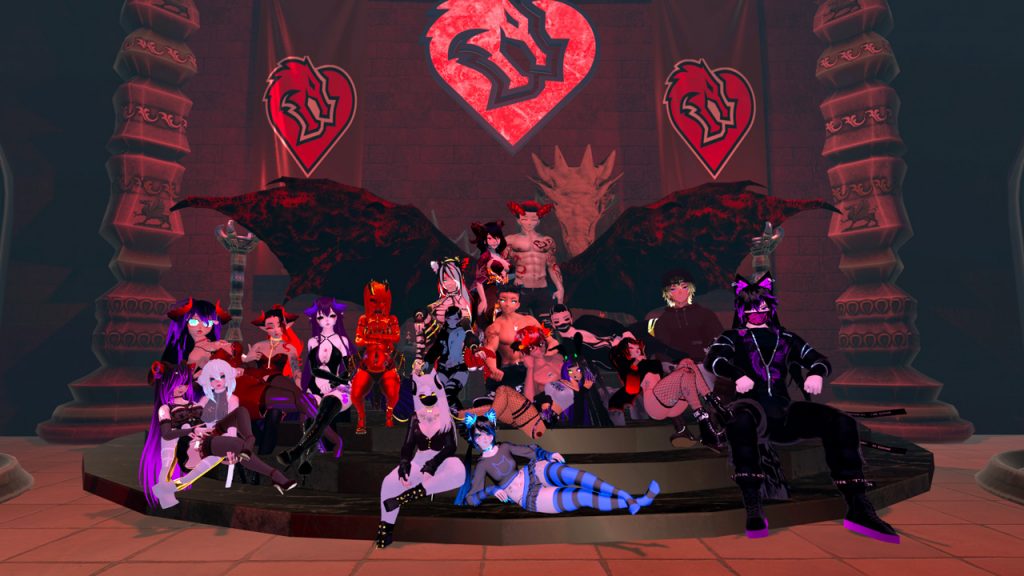
From “Virtually Speaking” to feature documentary “We met in Virtual Reality”
AGNESE – Hello Joe! It’s great to meet you again a year after Virtually Speaking. You know how much I loved that work, so a first question is necessary: what made you decide to go from that first project to a feature documentary?
JOE HUNTING – I’m so pleased you enjoyed Virtually Speaking! I knew I wanted to shoot a feature film before I even started working on Virtually Speaking actually. The inspiration to create something long form came after making my first short documentary A Wider Screen in late 2018. I discovered a lot of insightful stories whilst shooting that film, too many to fit into a short, but I was in no position to commit to a feature project at that time, so I sat on the idea and made another short titled Club Zodiac, whilst I finished my degree.
Virtually Speaking was shot during the initial Covid lockdown, and very quickly the cast of the show became the people I spent all my time with. The closeness I felt, emotionally and physically, with all my friends in VR during the pandemic was quite special, and that context was what really pushed me to shoot the feature.
I graduated in June, released Virtually Speaking in October, then VRChat creator Hirabiki released a virtual cinema camera called VRCLens in September, which all combined sealed the decision, by very fortunate timing.
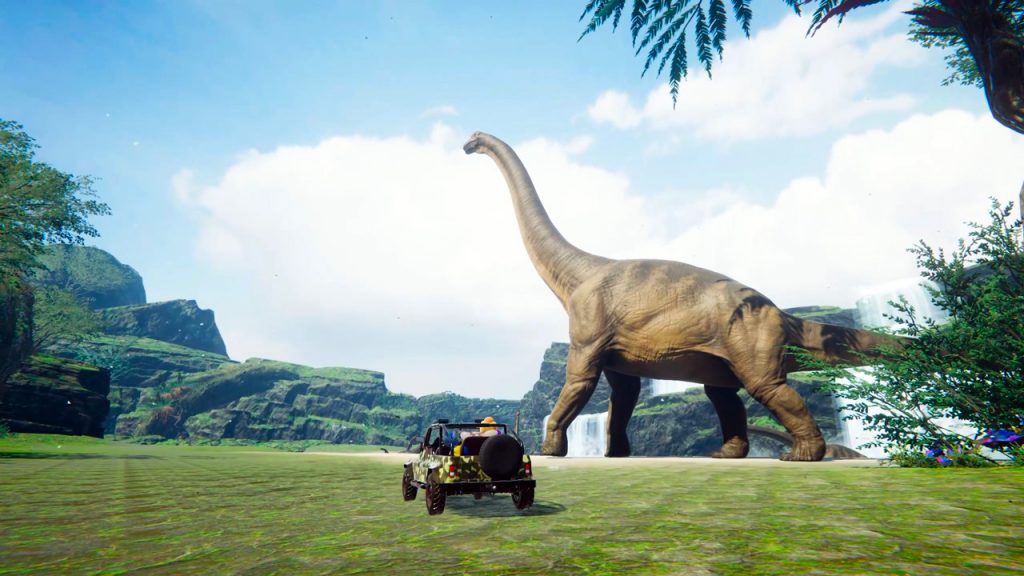
A. – “We Met in Virtual Reality” presents three very different stories: how did you meet those people and why did you decide to work on those three specific situations?
J. H. – Almost everyone appearing in the film I discovered organically through exploring different communities on the platform, before and during production.
I spent a year filming conversations and moments in about eight different communities, and edited the film as I went along with a lot of patience and kind support from the VRChat community generally.
I first met Jenny, who teaches ASL in the Helping Hands community, whilst filming Virtually Speaking as she features in the final episode. DustBunny I saw at a dance battle hosted by the IDA (International Dancers Association), then later discovered her belly dance classes and was introduced to her partner Toaster. Finally, I knew DragonHeart from making my second short in the Club Zodiac dance community, and he introduced me to his partner IsYourBoi.
It was important to me that I represented different contexts that exist in social VR, and alongside being very understanding and lovely people, they each felt very distinct from one another and had sincere stories to tell that I felt general audiences could relate too.
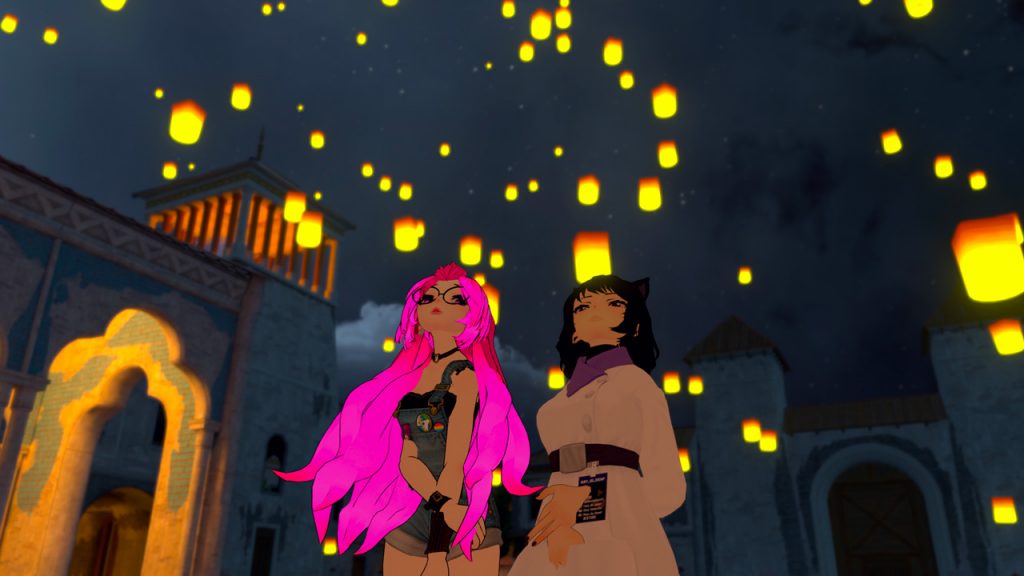
Filming challenges in VRChat
A. – When we met to talk about “Virtually Speaking” we discussed some of the challenges of shooting in VRChat. What changes when directing a 90-minute film, both artistically and technically?
J. H. – The artistic direction for the feature was drastically different from Virtually Speaking, and the biggest factor in that was shooting with an entirely new virtual camera. All my previous work was shot using the native VRChat camera, which has a wide lens and no depth of field, but for the feature I had access to VRCLens – a user created camera that simulates depth of field with control over focal length, aperture, exposure, focus, drone flying, anything and everything. Because of this camera, I could apply all the same cinematic techniques used in the physical world, which developed and improved my whole process.
The visual inspiration for We Met in Virtual Reality is based in realism, and putting audiences into the eyes of a user and speaking from within in VR instead of being on the outside looking in, so a lot of the film is shot handheld with a lot of spontaneous movement. The ability to pull focus, and shoot on different lenses with a camera in my hands put me in the same creative space as capturing a moment in physical reality.
Technically speaking, I spent hours location scouting across worlds, test shooting, writing interviews and loose directions, just as you’d imagine a physical documentary process to be. …The challenge of this production was sleeping! I am based in the UK, and all the cast, and VRChat communities in general, are on US time, so almost all my shoots were between 11pm – 6am. It was intense, but the benefit of this is I can say I shot a 90-minute film in my pajamas, which I enjoy.
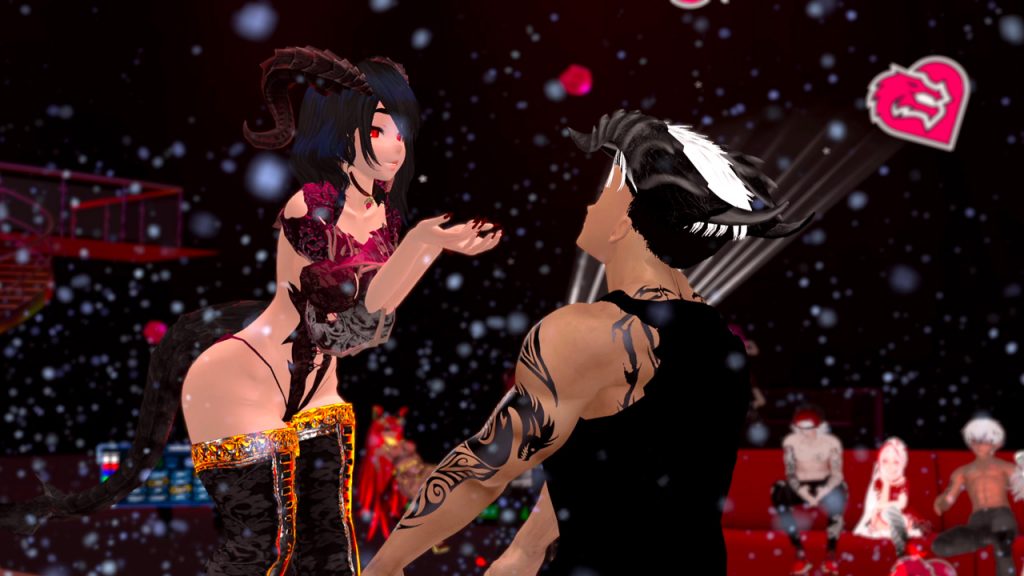
A. – Working in your pyjamas is the best thing ever, to be honest…. To stay on the technical side: VR is changing at such a fast pace and I wonder: are there any tools you still feel a bit lacking?
J. H. – As mentioned, VRCLens created by Hirabiki is a massive leap for filmmaking inside VRChat specifically. The native VRChat camera is also getting a major update soon with basic depth of field and focal length tools, which will no doubt create a surge in creative VR photography. In the current state of technology, I feel I have everything I need for filmmaking with VRCLens; the only lacking features I could mention I know are being introduced in further updates. I think we’re only lacking exhibitions showcasing this work, both physically and inside VR. That is something I plan to push after post-production for We Met in Virtual Reality.
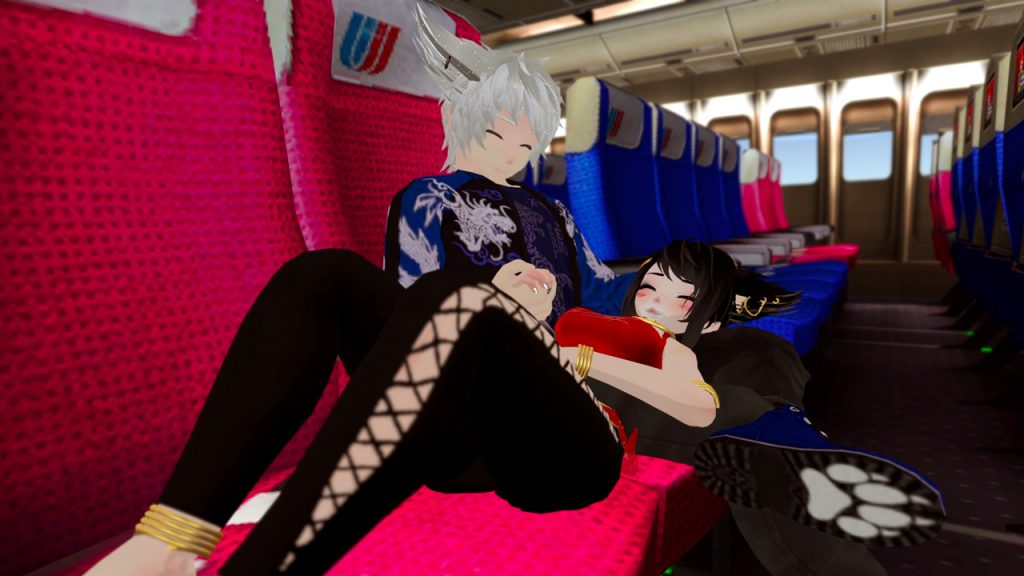
A. – You’ve seen a lot of the virtual world and I like the fact that one of the reasons you worked on this documentary is to help people understand it better and look at it in a positive way. What do you think are the main misconceptions that “outside” people have about it? And what do you think are the real risks and benefits of the virtual world?
J. H. – What I want people to feel and understand after seeing We Met in Virtual Reality is that the memories we make in VR are as tangible as the ones made in the physical world.
I think the main misconception I experience is people not valuing social VR as an actual place, rather than just a fictional video game world. The idea of VR is very intimidating, and I really want to represent the emotional experience of social VR in the most raw and un-obstructed way. There are so many benefits to VR! I think the benefits I’m most inspired by is using VR for education, and for finding a supportive community, both of which have helped me personally.
In my opinion, the main risk for VR is limiting self expression. It is so important that VR is a place where we can embody any form, and that the culture surrounding that is normal. My most precious memories over the past two years are with friends in VR, and everyone feels unique, to the point where I can draw my friends’ avatar from memory. I think we need to hold onto that uniqueness of self, just like in the physical world.
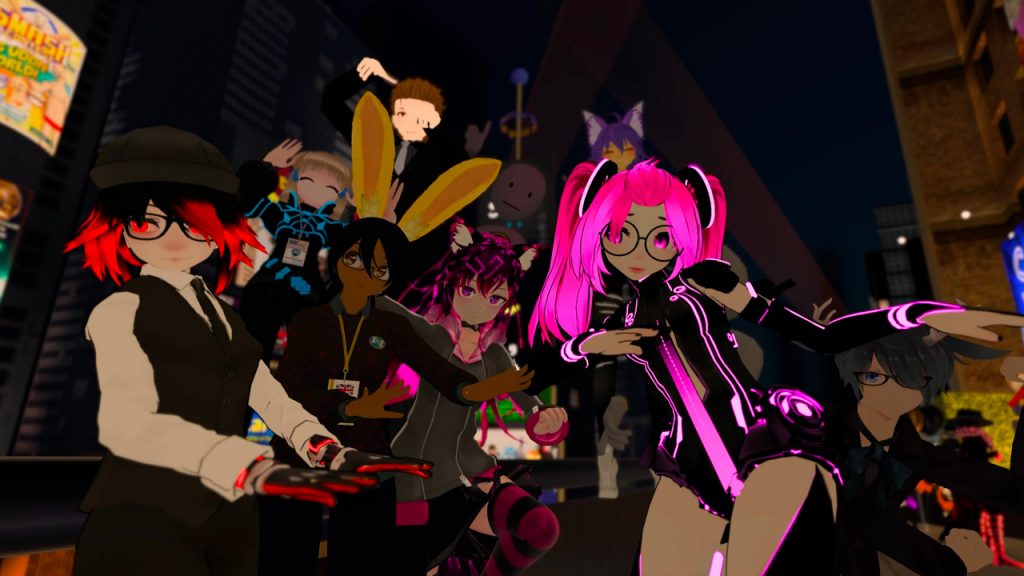
On the possibilities offered by online social VR platforms
A. – Everyone has been talking about the metaverse for a few months now and many people I know are kinda confused about it. Where do you think we are going with it?
J. H. – I’ve been asked this question a lot, and honestly? I have no idea. I feel like I have been working full time as a filmmaker in the “metaverse” for two years already, in VRChat, and obviously I think it’s wonderful. VRChat doesn’t have persistence across worlds yet, which I know is coming soon, and that will definitely create more of a “metaverse” context. I can confidently say social VR spaces will become more populated and the economy will become more established in the future, and I hope social VR / AR becomes the default meeting place online. The timing of these conversations has been quite perfect for the release of We Met in Virtual Reality.
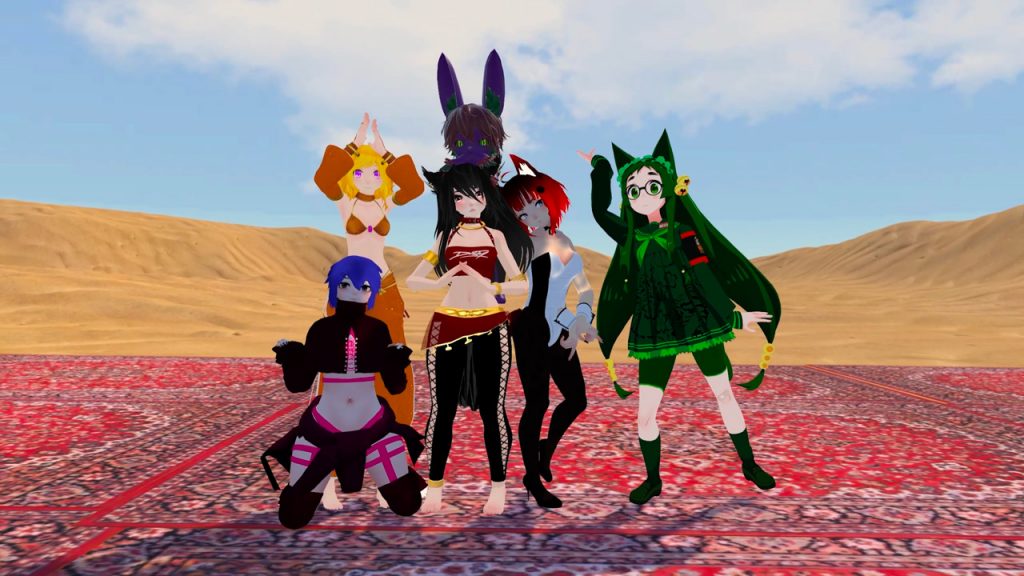
A. – What are your future plans and next steps for “We Met in Virtual Reality”?
J. H. – I have submitted We Met in Virtual Reality to several film festivals already to screen as early as January 2022, then I intend to secure the film on accessible streaming platforms during the summer to release it online for public viewing. Amidst the physical festival screenings, I will be doing a tour of VRChat screenings as well in Spring 2022! Tickets are going fast for those already, you can reserve via donating to the Indiegogo campaign. I expect the online premiere to be in September 2022 at the very latest.
A. – Do you think there could be a new branch of documentary filmmaking set in the world of social VR?
J. H. – Without a doubt in my mind VR is a new place for documentary filmmaking, and as the world of social VR develops, I certainly intend to continue documenting it through film and photography. I’d like to mention that social VR has a great potential for fiction narrative films as well, and I predict there will be a new wave of cinema created entirely inside VR in the future. I can say there are two fictional narrative feature length films now in production inside VRChat, which are releasing next year alongside my documentary.
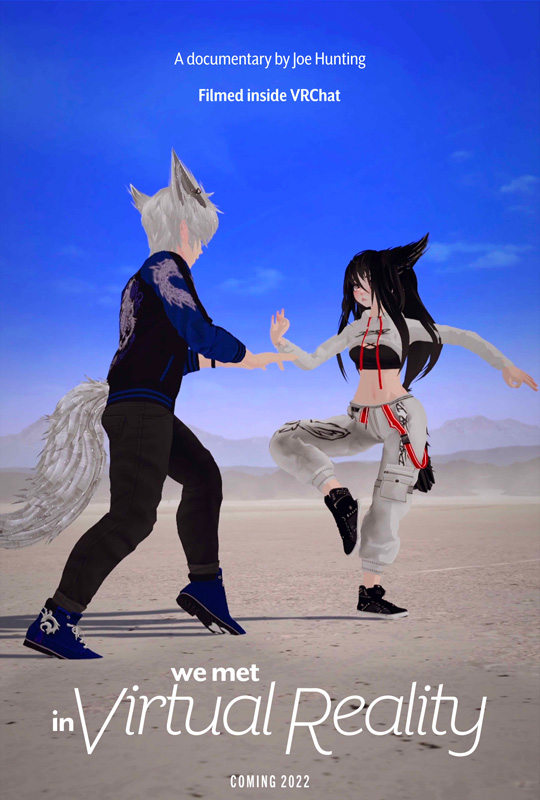
A. – I love these inside news (winks)… Joe, a final question: I’m particularly curious about the idea of someone teaching sign language in a virtual world. Are there other experiences similar to this in the world of VRChat? Worlds where you can learn something that turns out very useful for the community you belong to outside the virtual world?
J. H. – Yes! Helping Hands is a wonderful community for learning about different sign languages. There are other language study groups as well like VR Nihongo, which is Japanese focused. Additionally, there’s StemVR for science, tech, engineering and maths education. Sambhogakaya Samgha for Buddhist book readings and meditation. Artifex for band and instrument practice, and I could go on.
Many worlds in VRChat have an educational purpose as well like the ‘Helping Hands’ sign language history museum, which people can visit anytime. All the established communities of VRChat have their own Discord servers where events are managed. I’ve learnt a lot whilst travelling around VRChat, it can be a great place to discover new cultures, if you go in with that attitude and seek out the right communities.
A. – I’ll definitely be joining some of them then! Thanks for opening a wider window on this amazing world.
More informations on We met in virtual reality can be found on Joe Hunting’s official website and social pages (Twitter – Instagram – Linkedin). You can follow updates on the documentary on the crowfunding campaign page at Indiegogo. And finally, check out the Raindance Immersive virtual world curated by Joe Hunting to meet fellow festival-goers!

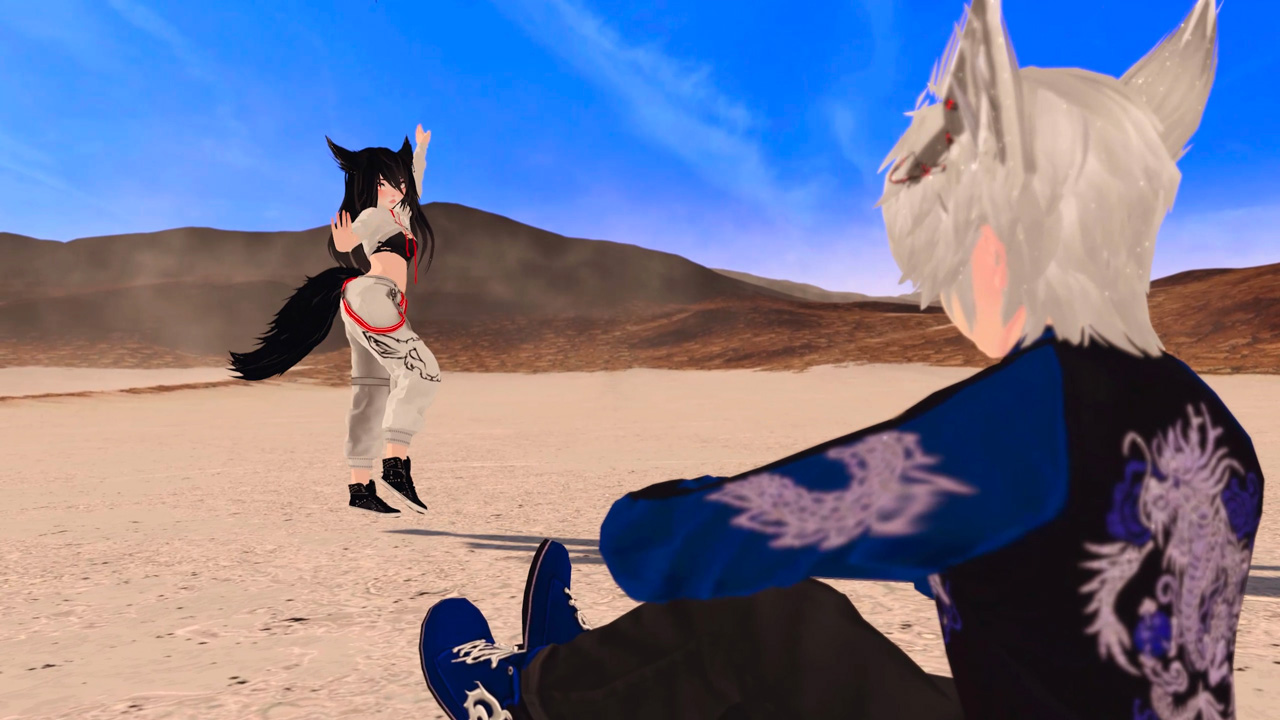

Leave a Reply
You must be logged in to post a comment.